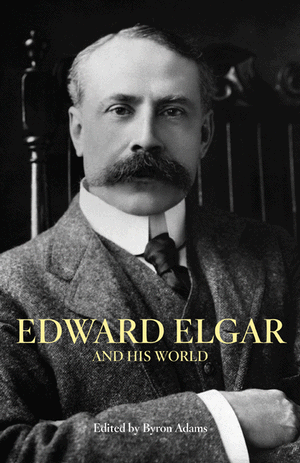Edward Elgar: The Man & His Music nWAY2013-02-24 18:38:27

Sir Edward Elgar, 1st Baronet, Order of Merit, Knight Grand Cross of the Royal Victorian Order (1857–1934) was an English composer, many of whose works have entered the British and international classical concert repertoire. Among his best-known compositions are orchestral works including the Enigma Variations, the Pomp and Circumstance Marches, concertos for violin and cello, and two symphonies. He also composed choral works, including The Dream of Gerontius, chamber music and songs. He was appointed Master of the King's Musick in 1924.
Although Elgar is often regarded as a typically English composer, most of his musical influences were not from England but from continental Europe. He felt himself to be an outsider, not only musically, but socially. In musical circles dominated by academics, he was a self-taught composer; in Protestant Britain, his Catholicism was regarded with suspicion in some quarters; and in the class-conscious society of Victorian and Edwardian Britain, he was acutely sensitive about his humble origins even after he achieved recognition. He nevertheless married the daughter of a senior British army officer. She inspired him both musically and socially, but he struggled to achieve success until his forties, when after a series of moderately successful works his Enigma Variations (1899) became immediately popular in Britain and overseas. He followed the Variations with a choral work, The Dream of Gerontius (1900), based on a Catholic text that caused some disquiet in the Anglican establishment in Britain, but it became, and has remained, a core repertory work in Britain and elsewhere. His later full-length religious choral works were well received but have not entered the regular repertory. The first of his Pomp and Circumstance Marches (1901) is well known in the English-speaking world.
In his fifties, Elgar composed a symphony and a violin concerto that were immensely successful. His second symphony and his cello concerto did not gain immediate public popularity and took many years to achieve a regular place in the concert repertory of British orchestras. Elgar's music came, in his later years, to be seen as appealing chiefly to British audiences. His stock remained low for a generation after his death. It began to revive significantly in the 1960s, helped by new recordings of his works. Some of his works have, in recent years, been taken up again internationally, but the music remains more played in Britain than elsewhere.
【古风按】英国杰出的电影导演肯·罗素(Ken Russell)于1962年为BBC拍摄的叙事记录片《埃尔加》是部佳作,特别是其前半段30多分钟把埃尔加在成名前遭受的种种失意描述得相当详细,对后世有抱负的年轻人具有巨大的激励作用。
世隔近半个世纪之后,BBC又于2010年由导演John Bridcut执导,邀请了Sir Colin Davis(One of the best British conductors),Sir Mark Elder(Music Director,Hallé Orchestra),David Owen Norris(Pianist and Elgar scholar),Edward Gardner(Music Director,English National Opera),James Burton(Choral conductor),Michael Kennedy(Elgar biographer),Anthony Payne(Composer and Elgar scholar),Vladimir Ashkenazy(Principal Conductor,Sydney Symphony Orchestra),Jerrold Northrop Moore(Elgar biographer),Paul Harper-Scott(Elgar scholar),and Natalia Luis-Bassa(Venezuelan conductor)等众多熟知埃尔加其人其事的音乐界知名人士,拍摄了记录片《面具之后的埃尔加》。该片并没有在埃尔加成名前的经历上过多地重复以前罗素经典记录片的内容,而是把主要的精力关注在对埃尔加音乐的解读与埃尔加创作经典名曲过程中的灵感来源之上,因此该片极具人生史诗般的美感,看后无不令人动容、感叹万千!
古风在观看了这两部有关埃尔加的记录片后感慨更多的其实是在发问:为何中国的这么多名导演们中就没有一个在赚取了上亿的票房后,能够真正静下心来把中国伟大作曲家的经历也拍摄成不朽的记录片,为之孙后代、为世界文化留下几份珍贵的遗产呢?不过把话说回来,中国到目前为止还真的没产生出一位世界级的作曲家。因此,中国没有拍摄出音乐记录片精品也是有其客观原因的。

Elgar by Ken Russell (BBC, 1962)

Elgar: The Man Behind the Mask by John Bridcut (BBC, 2010)
若您开始对埃尔加的音乐产生了兴趣,下面的这个EMI合集(30片CD套装)很值得收藏:
Elgar - The Collector's Edition
http://www.prestoclassical.co.uk/r/EMI/5036032
http://www.amazon.com/Elgar-The-Collectors-Edition-CDs/dp/B000UNBQW8

请阅读更多我的博客文章>>>